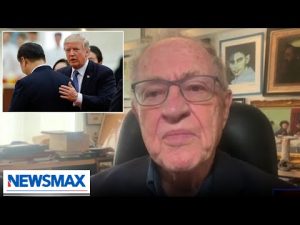**The Push for Truth: Unraveling the Mysteries of the JFK Assassination**
In the heart of Washington, D.C., a ripple of historical intrigue has once again captured the attention of lawmakers and citizens alike. The year 2025 marks the 58th anniversary of the assassination of President John F. Kennedy, an event that remains shrouded in mystery and skepticism. A filmmaker, present at a congressional hearing over three decades ago, took to the same halls once more, demanding clarity on a case that has perplexed Americans for generations. With a blend of passion and urgency, he urged Congress to peel back the layers of secrecy surrounding this infamous event.
The filmmaker recalled his earlier efforts to shed light on the assassination through his work, “JFK.” He vividly described the mixed reactions of Congress—some lawmakers were disinterested, while others championed the call for transparency from their constituents. After years of piecing together information, the public is still left with questions that refuse to fade into the background. Yet, he passionately argued that no matter how time moves on, the importance of understanding what happened on that fateful day in Dallas cannot be overstated.
What followed was a call to action. The filmmaker highlighted the JFK Records Act, established partly due to the hearings surrounding his movie. The legislation intended to bring forth crucial information about the assassination unless national security was at risk. Alarmingly, despite Congress’s best efforts, the Central Intelligence Agency (CIA) has conducted itself almost as if it’s above the law. The filmmaker’s frustration was palpable as he emphasized how little cooperation has come from the agency, neglecting to deliver the information mandated by Congress all those years ago. This lack of accountability prompts many to question whether transparency will ever be achieved.
At the crux of the filmmaker’s message was a larger narrative—one that connects the past’s unresolved issues to the present. He urged an investigation into the myriad facets of the case, including the infamous Warren Commission, which has since been criticized for its incomplete findings. With renewed vigor, the filmmaker demanded Congress investigate the sequence of events from the assassination scene to the courtroom, unveiling the concerns surrounding crucial evidence like the rifle, bullets, and fingerprints. This call reflects the desire for the same attention to detail and thoroughness that would be expected in any serious murder investigation.
Moreover, the filmmaker impressed upon the assembled lawmakers and citizens the importance of understanding the complexities of our nation’s history, specifically the roles that the CIA and other intelligence agencies have played. By shining a light on the past, there is an opportunity for America to reconcile with its narrative—one that includes not just moments of valor but also passages of betrayal and misconduct. As he emphasized, true democracy thrives on forthrightness, and for many, the pursuit of truth is a fundamental principle worth championing.
In closing, the filmmaker’s earnest plea was not just for his own satisfaction, but for the heart of American democracy itself. For a nation built on the ideals of transparency and justice, it is essential to honor the legacy of those who have served, including President Kennedy. The inquiry and accountability sought are emblematic of a broader desire for a government that operates with the respect and integrity its citizens deserve. As the 59th anniversary approaches, it is clear that the desire for closure remains as strong as ever, reminding us all that the past may be distant, but the quest for truth is always within reach.







